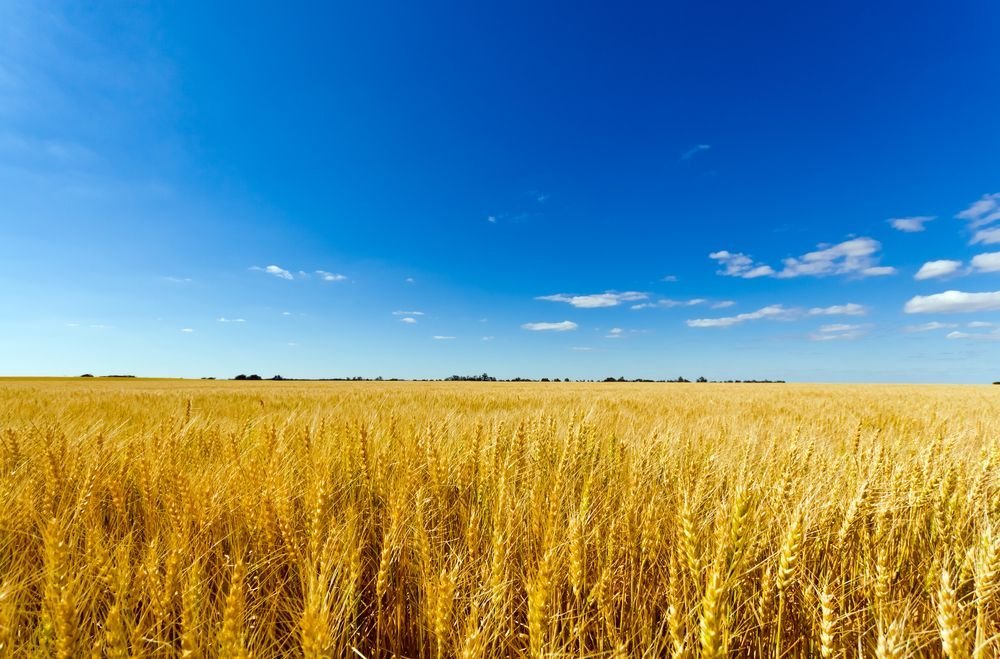Image: Wheat field of Ukraine.
July 23 - Russian forces attacked the Black Sea trade port in Odesa with cruise missiles. The attack endangered the grain export deal signed the day before.
Two missiles were shot down by Ukraine’s air defense, while the other two hit the port's facilities. The attack came a day after Russia and Ukraine signed a UN-backed agreement to resume exports of Ukrainian grain through the Black Sea. The deal agreed to the passage of Ukrainian grain from three southwestern ports in Odesa Oblast, including the one in Odesa. (Kyiv Independent)
July 22 - Turkey made a deal between Russia and Ukraine to allow exports of grain from blockaded Ukrainian ports. An estimated 22 million tons of grain are waiting to be shipped out of Ukraine’s southern ports - this backload of grain has led to a global food shortage and rising prices. Here is a summary of the deal from Kyiv Post.
Note: July 14, 2022 - The United States clarified that it has not imposed sanctions on agricultural, agricultural equipment, or medicine. (US Treasury)
July 20 - Russia threatened to cut of oil and gas to Europe. “Nuremberg has stopped illuminating its historic buildings, Hamburg landlords are rationing hot water, and Berlin may turn off nonessential traffic lights at night. In Potsdam, even the temperatures on Germany’s beloved saunas have been turned down. It is part of a desperate scramble across Europe to reduce energy consumption in a summer of soaring temperatures and prices and to build up natural gas supplies ahead of the bitter chill of winter — in anticipation that Russia may shut off the gas completely.”
“Russia has already stopped sending gas to the Baltic states and Poland, Bulgaria and Finland, and flows to Denmark, the Netherlands and Italy have been reduced…Germany’s heavy reliance on Russian gas makes it especially vulnerable to disruptions…Moscow, supplies 30 percent of the natural gas used for Germany’s electricity production and home heating.” (Washington Post)
ON THE HOMEFRONT
July 19 - Ukraine’s President Zelenskyy may be taking this opportunity to clean house by cashing in on his popularity and the exigencies of the war. Zelenskyy was elected in 2019 for his platform to reform the government and eradicate corruption. Not surprisingly, trying to get a government to eliminate corruption when the government leaders and employees live off of that corruption is very difficult. Zelenskyy, an outsider who may have the right motives, has meet much resistance in his attempt to change a system that runs on corruption. (For an interesting read on this topic, read the June Report War and Corruption in Ukraine by Drago Kos who works for the OECD.)
On July 19 - With the support of the parliament, Zelenskyy fired Security Service Head Ivan Bakanov and Prosecutor General Iryna Venediktova, officially claiming that their departments contained a large number of employees who were collaborating with occupying Russian forces.
Bakanov has been criticized for a resistance or inability to reform Ukraine’s archaic intelligence service which is a bloated and highly corrupt part of the government. The Security Service of Ukraine, known as S.B.U., is the successor to the Soviet-era K.G.B. With a whooping 30,000 employees, it is Europe’s largest security agency - in comparison, Britain’s MI5 has just 4,400 employees. The agency has vast powers and is plagued by corruption.
After Prosecutor General Iryna Venediktova was fired on Sunday, a court ordered the country’s anti-corruption agency, the National Anti-Corruption Bureau of Ukraine, to investigate her failure to fill out a report declaring assets and income as required by a new anti-corruption law.
July 19 - More on Corruption. After much delay, Oleksandr Klymenko has been appointed as the new head of the Specialized Anti-Corruption Prosecutor’s Office (SAPO). Appointing the head of SAPO was listed by the European Union (EU) as one of the conditions for Ukraine to retain candidate EU membership status.
NABU investigates corruption and prepares cases for prosecution. SAPO indicts and prosecutes the cases. The High Anti-Corruption Court (HACC) tries corruption cases, including high-level cases against political figures.
Still…
